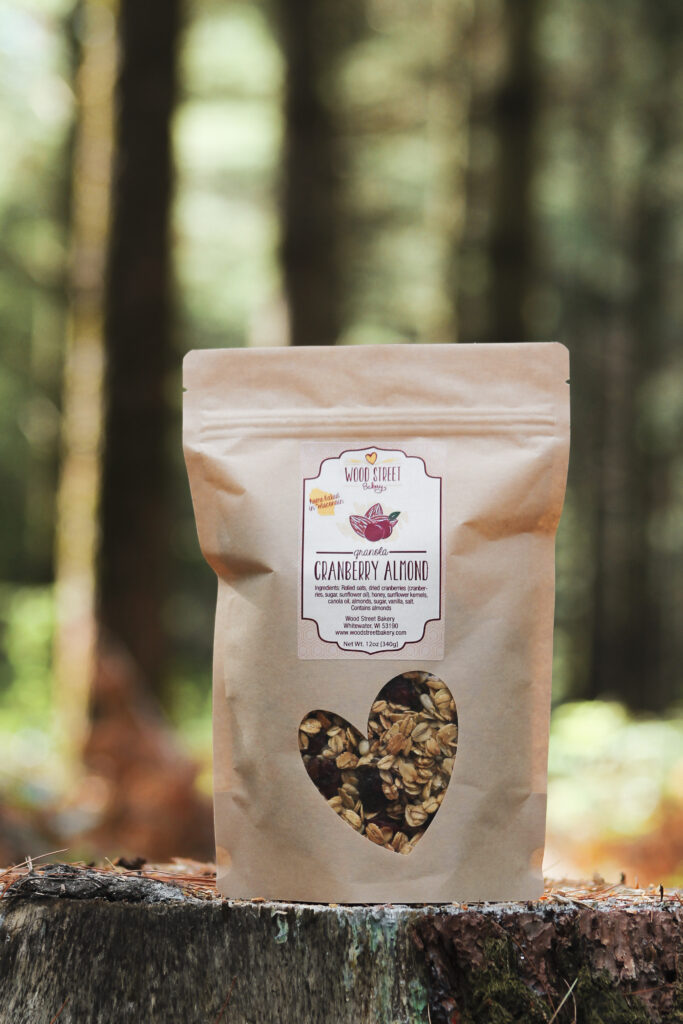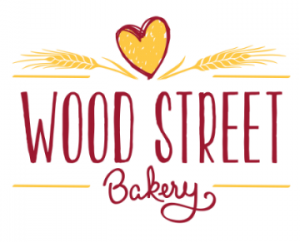FAQ
Popular Questions
Thanks for browsing through more information about our bakery! If there is anything else you would like to know, we would love to connect!
While we do not intentionally add ingredients to our granola recipes
that are known to contain gluten, we have not sourced certified gluten-free
ingredients either. The granola is prepared in our home bakery, which is/will
be used to bake wheat-based products. However, the oven and baking/storage
containers we use to bake the granola are used exclusively for granola.
We’re at an early stage of product development and are open to suggestions. Granola is VERY flexible in this sense. If you have a favorite combination of ingredients, we would be more than happy to bake a custom batch (4 lbs minimum) for you.
It’s becoming a common complaint from women, who, while savoring their precious granola by adding reasonable portions to their yogurt are noticing their husbands dumping half the pouch into their cereal bowl.
We offer three options:
1. Fight for your granola. You bought it, and he needs to practice some self-control. However, if you want to avoid conflict in your marriage, try option 2…
2. Hide your granola. Put a secret stash somewhere he won’t think of looking. Of course, you’ll need to wait till he’s gone to eat it or sit in your closet enjoying your breakfast…
3. Tell him to buy a bulk order; it’s less expensive. Then tell him it has to last at least one month, and he needs to stop mooching from you!
Unfortunately, we are not permitted to sell our goods directly from our home. We may produce them there (we have an occupational permit), but to respect our neighbors in this residential area, and abide by our city ordinances, we must use other market avenues to distribute product.
We want to wait until the business “proves itself” before making such an investment. Please see our “Find Our Product” menu to get an overview of current options. We also attend city/farmers’ markets in Whitewater and Madison.

All About Bread

If you plan to consume the bread within four days, simply store your bread in its bag on the counter or in a cool, dry place (it may last longer depending on the environment). Sourdough bread usually lasts 2x longer than our non-fermented loaves.
If you plan to consume the bread within four days, simply store your bread in its bag on the counter or in a cool, dry place (it may last longer depending on the environment). Sourdough bread usually lasts 2x longer than our non-fermented loaves.
We don’t recommend it unless you need it to last longer than a week. While slowing mold growth, storing bread in the refrigerator has the drawback of accelerating the staling process. As a compromise in warmer environments, we recommend storing in a cool, dry place such as a pantry.
Absolutely! We recommend double bagging the loaf when storing it in the freezer and using it within three months. Some customers choose to freeze partial loaves if they anticipate eating one loaf over several weeks.
To preserve the loaf the longest, we recommend cutting off a slice the same day you plan to eat it.
The quickest way to enjoy it is to lightly toast the slice you’re about to eat.
To refresh a whole loaf:
– Preheat oven to 350°
– Place the whole loaf on a baking sheet or directly on the oven rack and heat until warm and slightly crusty (10 to 15 minutes).
We do not recommend eating it even if you think you’re avoiding the mold. There are only certain foods in which this method is safe such as cheese and firm fruits and vegetables.
We ferment our dough for 30 to 36 hours, giving you all the health benefits!
We have some customers who would normally follow a gluten-free diet but have found our Sourdough Bread to work well for their gut. Though we do not recommend those with Celiac Disease to risk it.
- It’s easier to digest. On their own, grains can be very difficult to digest. However, the lengthy fermentation process of sourdough helps break down the gluten protein, making it easier to digest. We even have a few customers that would otherwise follow a gluten-free diet, but can tolerate the gluten in sourdough due to it being naturally processed before it is eaten.
- It’s more nutritious. Similar to yogurt and kombucha, because sourdough is fermented, it fosters the good bacteria in the bread and in your body when you eat it. It naturally lowers the phytate levels which allows your body to easily absorb the nutrients it contains. Compared to other types of bread, it won’t cause your blood sugar to rise so drastically due to its lower glycemic index.
- It keeps you full for longer. The longer the fermentation process, the greater the proportion of soluble fiber in the bread. The fiber in combination with the high amount of resistant starch helps keep you going and feeling fuller for longer.
- It has a longer shelf life. Our sourdough loaf lasts much longer than other naturally baked breads! It contains naturally occurring acetic acid, which slows down mold growth. Our sourdough usually lasts two to three weeks sealed on the counter and is also good after being frozen for up to three months.
- It tastes good! In addition to sourdough being a healthier alternative to regular bread, it tastes great too! The strength of the fermented flavor will vary depending on where you get your sourdough; ours is distinct, but not overpowering.
Authentic sourdough is made by using simple ingredients and an extended fermentation process to create a natural leaven. This fermentation process is what makes the dough naturally rise without added yeast and gives the dough time to naturally develop the grains. The first sourdough starter is kept alive by ongoing feedings for the purpose of leavening additional dough for future uses.
Anyone who has made their own sourdough knows that it’s a lengthy process, but the results are worth it! The extended fermentation process is what gives sourdough bread a distinct flavor and added health benefits.
Not all sourdough is created equal. Unfortunately, the term “sourdough” is not protected. A majority of sourdough loaves sold in stores are made by large manufacturers that short-cut the process to reduce production time and price of the product. These loaves often do not provide the same health benefits as traditional sourdough bread.
- Check the ingredients: in authentic sourdough, there should not be any added yeast, sweetener, or additives as souring agents to add flavor like vinegar, yogurt, or dried sourdough powder.
- When buying from a local baker, consider asking how long their fermentation process is. An authentic loaf should ferment for at least four hours up to multiple days. We ferment our dough for 30 to 36 hours.
